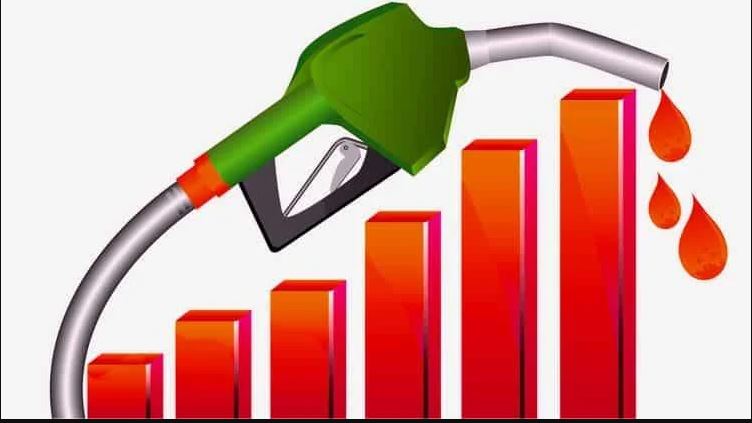Experts tell Abuja, fuel subsidy is eating up investment funds
By Jeph Ajobaju, Chief Copy Editor
Economic and financial experts have again warned that fuel subsidy is choking growth and is not sustainable, sequel to the disclosure of Finance Minister Zainab Ahmed last week that subsidy would cost N6.72 trillion this year.
Ahmed announced it in Abuja at the Public Consultative Forum on the draft Federal Government 2023-2025 Medium Term Fiscal Framework & Fiscal Strategy.
She projected fiscal outcomes in the medium term under two scenarios, saying fuel subsidy would consume entire revenue next year if not eliminated.
“Scenario 1 – the Business-as-Usual scenario: This assumes that the subsidy on PMS [petrol], estimated at N6.72 trillion for the full year 2023, will remain and be fully provided for,” she said.
“Scenario 2 –Reform scenario: This assumes that petrol subsidy will remain up to mid-2023 based on the 18-month extension announced early 2021, in which case only N3.36 trillion will be provided for.”
Ahmed warned that if fuel subsidy continues throughout 2023, net revenue could fall to N500.566 billion.
In Scenario 1, she explained, it is not feasible to make provision for capital expenditure in 2023 beyond multilateral/bilateral loan-funded and donor-funded projects.
“The FGN’s 2023 aggregate expenditure is estimated at N16.98 trillion, which is N337.05 billion (1.9%) lower than the 2022 budget.
“The sums of N20.29 trillion and N22.73 trillion are projected to be spent by the FGN in 2024 and 2025, respectively.”
_______________________________________________________________
Related articles:
Fuel palaver to end with Dangote Refinery up and running
Subsidy removal rumour sparks new fuel scarcity, price rise
Buhari aiding N950b scam in NNPC, says Benue
_________________________________________________________________
Analysts warn of subsidy danger
In their reactions, stakeholders, experts, and analysts warned the economy will collapse if fuel subsidy continues to the detriment of investment and economic growth.
Felix Amieyeofor (EnergyHub Nigeria Lead Promoter)
“Subsidy is not sustainable. The government knows it. It is eating deep into the purse of the federal government.
“This government does not have the time to solve the subsidy problem. The solution is to get our refineries, which have been under Turn Around Maintenance, TAM, working,” Amieyeofor told Vanguard.
“Petrol subsidy will continue to rise as the prices of crude oil continue to surge in the international market. At the current crude oil price, they will continue to subsidise until their refinery works.
“But they can do a swap arrangement with an offshore refinery. The other solution is to popularise dual fuels like Compressed Natural Gas (CNG) and Liquefied Petroleum Gas (LPG).
“They can also embark on increased adoption of electric cars to reduce dependence on petrol as well as set up recharge points with solar power at various stations in most cities.
“Electric cars can be made to drive within major cities. It is cheaper to do that in the interim than to build Refinery. Government can save a lot of money.”
Victoria Ibezim-Ohaeri (Spaces for Change Executive Director)
“In principle, the new emergence of the new NNPC Limited is gladdening. It is a very good idea, capable of opening up the market.
“But some stakeholders have their fears, which are well-founded. For instance, the power sector was opened up for public participation which has not been very successful because the political class ended up taking them over.”
Uche Uwaleke (Professor of Capital Market and President Association of Capital Market Academics of Nigeria)
“Fuel subsidy is a drain on the nation’s scarce resources and is at the expense of development spending. The opportunity cost is so high, compounded by the non-transparent nature of the subsidy regime.
“To date, no government agency has accurate data on the volume of petroleum products consumed in the country.
“I think it is time that the government commenced the process of phasing out fuel subsidy. It should be a gradual process given the immediate negative impact of its implementation on inflation which is already too high.”
David Adonri (HighCap Securities Analyst and Vice Chairman)
“Fuel subsidy is the albatross hanging dangerously over Nigeria’s economy. Whoever formulated this policy at its inception only did so to satisfy some political expediencies.
“For a developing economy that needs to push every subsidy into production, consumption subsidy exemplified by fuel subsidy, makes no economic sense.
“This bad policy will continue to haunt the economy if not discarded. It is because of fuel subsidy that the federal government is borrowing so much and paying out virtually all revenue to service debt.”


